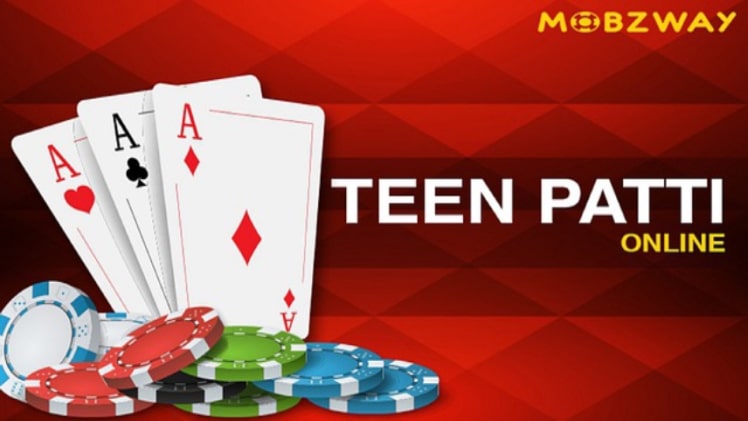Teen Patti is, without a question, the most popular card game in India. This so-called “Indian Poker” has come to characterize the desi idea of gambling, and is played frequently at social events and growing at offline and internet casinos. By raising the bar for enjoyable card games across generations, Teen Patti has contributed to spreading the word about responsible gambling. We decided it was necessary to provide convincing proof of the factors that have contributed to this phenomenon’s meteoric rise to the top of the popularity charts and its subsequent widespread acceptance by the general public. Players understand all the Teen Patti Rules to earn real cash.
To those who are unfamiliar with the term, what is teen Patti?
Westerners have trouble grasping Teen Patti’s status in Indian culture. In many parts of India, it is the go-to card game, and it’s always a popular choice for a night of casual gambling. Its recent rise to prominence is seen throughout South Asia. Teen Patty’s accessibility and ease of play are its greatest strengths; the game may be played with as many as ten to twelve players at a table, and the only skill necessary is the ability to “count” cards. It’s not often connected with gambling Itsmypost, but it’s a fun activity for get-togethers of all sizes, from intimate meetings to massive celebrations, where attendees may drop anything from a few thousand rupees (a few euros) to several lakhs. Teen Patti is the universal drink of choice since it is fun and classic.
The Beginnings of Teen Patti
Teen Patti’s widespread appeal stems from the deep ties that it shares with essential aspects of Indian religion, social life, and history. Diwali is the most luminous and joyous of the Hindu festivals since it is the occasion for which families gather together. Certain social and family customs, however, accompany Diwali and add flavor to the celebrations. Teen Patti has become very popular since it is one of the few card games where actual rupees are wagered. House and club celebrations begin a full two weeks before Diwali day, bringing friends and family together for the annual test of luck vs wits. As an enduring Indian belief, betting on Diwali has a storied history of justification. One popular myth is that Parvati, the Hindu Mother Goddess, and Shiva, the Hindu God of Death and Rebirth, engaged in a game of dice. She said that everyone who bet on Diwali evening would have a prosperous year ahead. Thus, Diwali is linked to prosperity, and monetary games are almost obligatory at this time of year.
Context of teen Patti’s history and culture
- Teen Patti is more than just a Diwali fad, however; its popularity continues long after the festival is over. The game’s qualities and culturally driven association with another Indian celebration—Janmashtami, the birth of Krishna—are clear. Family gatherings are a great opportunity for everyone to spend quality time together, and Teen Patti often takes the lead when it comes to organizing fun gambling games that everyone can enjoy newslookups.
- It’s become an almost pathological preoccupation for many different cultures. Throughout the celebrations, all family members play, with children playing equally and the lengthy sessions even “take their minds off of eating.”
- It’s unlikely that it’s the most popular card game in every state, and it’s almost certainly not the most popular form of gambling in India. Players in the South are more likely to choose Rummy than Teen Patty for social gatherings and other daily situations.
- Even if one ignores the fact that Teen Patti’s popularity surges during festive seasons, the game is still very well-liked in a large number of countries, particularly in India’s Maharashtra and Gujarati states. Delhi and Ahmedabad, two of India’s most prominent cities, are also major cultural centers, and their traditions around family gambling and sociable gambling have a profound impact on the rest of the city. People now resort to a wide range of internet possibilities in addition to playing together as they always did, whether at home or a friend’s house. Facebook groups, WhatsApp channels, and workplace chat groups are common places for players to plan tournaments.
- Other minor variations exist across states and local areas. For instance, although Janmashtami may be observed on a Sunday in the North, in the South, West, and East it is more likely to fall on a Saturday. While some may (still) see Teen Patti Cash Games gatherings as private family affairs, others may see them as a social or professional opportunity. As Indian tradition has it, “the gods also bet, and that is why worshippers do, too,” it is not uncommon for regular people to feel a want to gamble at these times.
- Naturally, fewer people now than ever before do it for religious reasons. This is something that they do since it is something that is generally accepted. In addition, a month of consistent Teen Patti play is required between the Hindu celebrations of Diwali and Janmashtami.

